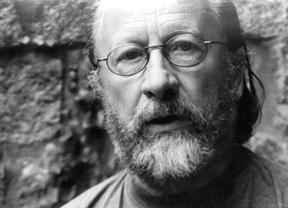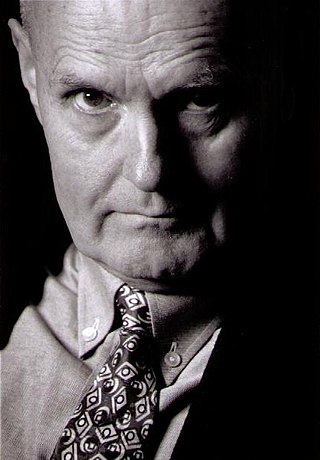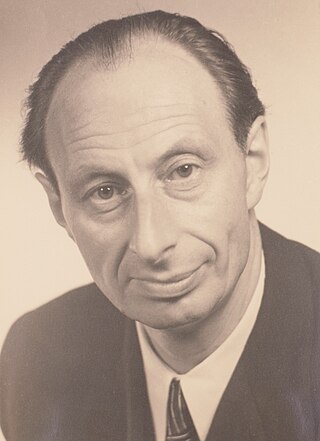Kathinka Rebling | |
|---|---|
| Born | The Hague |
| Parent(s) | |
| Relatives | Jalda Rebling (sister) Janny Brandes-Brilleslijper (aunt) |
Kathinka Rebling (1941 - 2020) was a German/Dutch violinist and musicologist.
Kathinka Rebling | |
|---|---|
| Born | The Hague |
| Parent(s) | |
| Relatives | Jalda Rebling (sister) Janny Brandes-Brilleslijper (aunt) |
Kathinka Rebling (1941 - 2020) was a German/Dutch violinist and musicologist.

Rebling was born in The Hague. Her parents, the artist couple Lin Jaldati and Eberhard Rebling, had met in 1937 in the Netherlands, where Rebling had emigrated because of the Nazis. Her mother and aunt, Janny Brandes-Brilleslijper, were the first to report about the death of Anne Frank. Her sister Jalda Rebling is a hazzan. She received her first piano and violin lessons in Amsterdam. In 1952, the family moved to the DDR. From 1955 to 1959, she continued her violin studies with Werner Scholz at the orchestra and choir school of the Hochschule für Musik "Hanns Eisler" Berlin.
From 1959 to 1964, she studied the violin with Galina Barinova and Yuri Yankelevich at the Moscow Conservatory. From 1964 to 1967, she studied at the Faculty of Arts in Moscow, where she took over an artistic and scientific aspirant. In 1974, she was awarded a doctorate Dr. phil. in Moscow. From 1986 to 1989, she studied musicology at the Humboldt University of Berlin. For over 30 years, she taught violin and methodology at the University of Music and Theatre Leipzig and the Hochschule für Musik "Hanns Eisler".
Since the 1960s, she has devoted herself to folk song and artificial music of national minorities. In the 1980s she also performed Yiddish music together with her parents and her sister Jalda Rebling (singing) on international stages.
Rebling has published numerous scientific and methodological contributions. In 1995, she published Carl Flesch's posthumous work Die hohe Schule des Fingersatzes for the first time in the original.
She has given concerts in almost all European countries as well as in Israel, China, Cuba and the USA. Guest professorships took her to Beijing, Vila Seca and repeatedly to Vilnius. She is a jury member of numerous national and international competitions.
Former students of Rebling were and are active in leading orchestras of the Federal Republic of Germany (also as concertmasters) - such as the Gewandhausorchester Leipzig, the Staatskapelle Berlin, in Bayreuth and Stuttgart. [1]
In 1999, she was appointed honorary professor for sorbian music and music history at the Brandenburg University of Technology. There, she is president of the Institute for West Slavic Music Research e.V.

The Hochschule für Musik Hanns Eisler Berlin in Berlin, Germany, is one of the leading universities of music in Europe. It was established in East Berlin in 1950 as the Deutsche Hochschule für Musik because the older Hochschule für Musik Berlin was in West Berlin. After the death of one of its first professors, composer Hanns Eisler, the school was renamed in his honor in 1964. After a renovation in 2005, the university is located in both Berlin's famed Gendarmenmarkt and the Neuer Marstall.

Georg Katzer was a German composer and teacher. The last master student of Hanns Eisler, he composed music in many genres, including works for the stage. Katzer was one of the pioneers of electronic new music in the German Democratic Republic and the founder of the first electronic-music studio in the GDR. He held leading positions in music organisations, first in the East, then in the united Germany, and received many awards, including the Art Prize of the German Democratic Republic, the National Prize of the German Democratic Republic, the Order of Merit of the Federal Republic of Germany, and the German Music Authors' Prize.

Günter Kochan was a German composer. He studied with Boris Blacher and was a master student for composition with Hanns Eisler. From 1967 until his retirement in 1991, he worked as professor for musical composition at the Hochschule für Musik "Hanns Eisler". He taught master classes in composition at the Academy of Music and the Academy of Arts, Berlin. He was also secretary of the Music Section of the Academy of Arts from 1972 to 1974 and vice-president of the Association of Composers and Musicologists of the GDR from 1977 to 1982. Kochan is one of eleven laureates to have been awarded the National Prize of the GDR four times. In addition, he received composition prizes in the US and Eastern Europe. He became internationally known in particular for his Symphonies as well as the cantata Die Asche von Birkenau (1965) and his Music for Orchestra No. 2 (1987). His versatile oeuvre included orchestral works, chamber music, choral works, mass songs and film music and is situated between socialist realism and avant-garde.
Silke Leopold is a German musicologist and university lecturer.
Hanns-Werner Heister is a German musicologist.
Arnold Jacobshagen is a German musicologist. He has been teaching at the Hochschule für Musik und Tanz Köln since 2006.
Günter Mayer was a German cultural academic and musicologist.

Antje Weithaas is a German classical violinist. Apart from solo recitals and chamber music performances, she has played with leading orchestras in Europe, Asia and the United States.

Fritz Hennenberg is a German musicologist and dramaturg.
Manuela Schwartz is a German musicologist.

Gustav Havemann was a German violinist and from 1933 to 1935 head of the "Reichsmusikerschaft" in the Reichsmusikkammer.

Jürgen Elsner is a German music ethnologist and author.
Nathan "Noto" Notowicz was a German musicologist and composer.

Eberhard Rebling was a German pianist, musicologist and dance scholar as well as an anti fascist.
Werner Scholz was a German violinist and director of a master class for violin.

Helmut Koch was a German conductor, choir leader, composer, and academic teacher. He was recording manager for the Berliner Rundfunk from 1945, where he founded the Solistenvereinigung Berlin, the Kammerorchester Berlin and the Großer Chor des Berliner Rundfunks. He conducted a recording of Monteverdi's L'Orfeo in 1949, and later also contemporary classical music by composers including Hanns Eisler, Fritz Geißler, Ernst Hermann Meyer and Ruth Zechlin. He was professor at the Hochschule für Musik "Hanns Eisler" from its beginning. After working as a regular guest conductor at the Staatsoper Berlin, he became Generalmusikdirektor. He was the first conductor of the Berliner Singakademie in East Berlin, and held the position until his death.
Hans-Peter Jannoch (1938–2004) was a German conductor, composer and pianist.
Olaf Koch was a German conductor and Hochschullehrer.
Pauline Sachse is a German violist, chamber musician, and professor at the Hochschule für Musik und Theather Felix Mendelssohn Bartholdy.
Robert Ehrlich is a Northern Irish recorder player and university professor. From October 2015 until 2019, he was rector of the Hochschule für Musik Hanns Eisler Berlin. Previously, he was rector of the University of Music and Theatre Leipzig from 2006 to 2015.